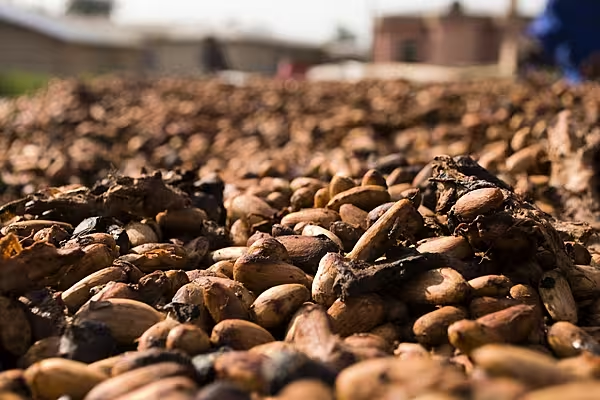Rain in Europe has brought relief to parched wheat belts but more moisture is needed to prevent this summer's harvest shrinking further compared with last year's bumper crop, analysts said.
A dry spring has increased growing difficulties for wheat crops in parts of Europe after a soggy autumn and winter that cut sowing and prevented crops establishing strong roots.
"We're heading towards one of the smallest wheat crops of the last decade in Europe," Sebastien Poncelet of consultancy Agritel said.
"This rain may at least stabilise the situation."
Monthly Forecast
The European Commission cut its monthly forecast of this year's common wheat crop in the European Union, excluding Britain, by over 4 million tonnes to 121.5 million, 7% below last year's level.
In France, heavy rain arrived last week with storms that broke a hot spell and more showers are forecast for this week.
That should help wheat crops that have been rated by farm office FranceAgriMer at their poorest condition since 2011.
"We're going to have an extremely varied crop," Francois Laurent, research and development director at crop institute Arvalis, said. "Wheat in deep soils is holding up okay."
Many traders are expecting a French soft wheat crop of 32-33 million tonnes, compared with 39.5 million tonnes last year.
In Germany, the return of rain should help dry northern and eastern grain belts.
Germany's 2020 wheat crop of all types will fall 2.9% on the year to 22.38 million tonnes, the country's association of farm cooperatives forecast in May. But some private trade forecasts are being cut to about 21.8 million tonnes.
In Poland, recent rain also improved crop conditions, said Wojtek Sabaranski of analysts Sparks Polska.
"The first half of June is likely to be quite rainy, so we may actually see some further crop improvements," he said.
He estimates Poland’s 2020 crop will be little changed from 2019 at about 11.1 million tonnes.
More Rainfall Needed
Britain has seen less rain than continental Europe last week and more is needed to prevent a further deterioration of crops.
"We've had a little bit of rain during the 48 hours across the country ," said Richard King, head of business Research at agricultural consultants The Andersons Centre.
"We’ve probably already got some (adverse) yields effects locked in from the weather so far."
The Andersons is projecting a UK wheat crop of less than 10 million tonnes this year, against last season's 16.3 million.
News by Reuters, edited by Donna Ahern, Checkout. Click subscribe to sign up for the Checkout print edition.









